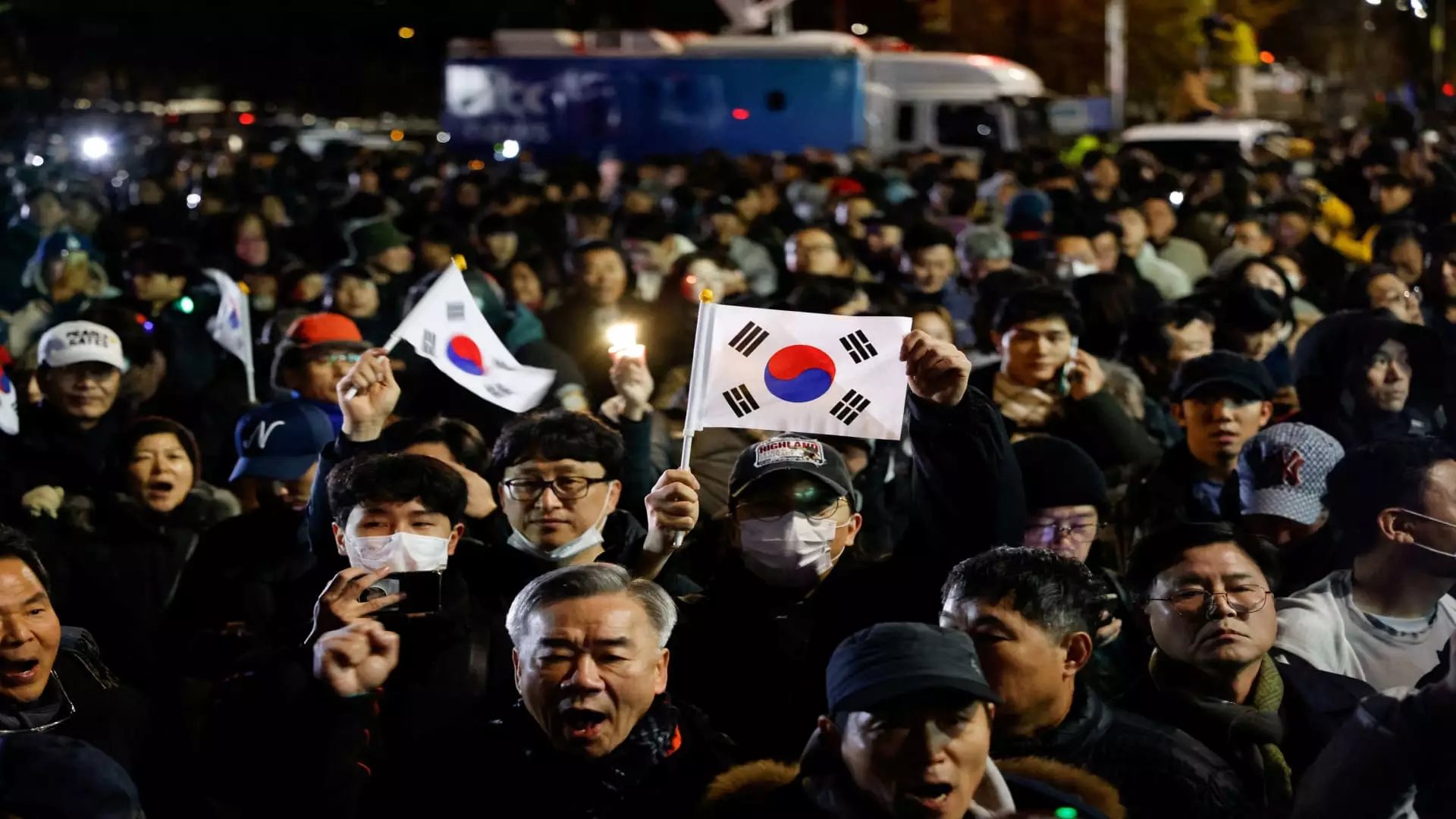The financial landscape in South Korea has been dramatically shaken following a day of political chaos involving President Yoon Suk Yeol. As the government grappled with an emergency martial law declaration that was swiftly lifted, the impact on the stock markets was significant. The Kospi index experienced a sharp decline of 1.8%, while the Kosdaq faced an even steeper drop of 2.4%. This volatility came in the wake of mounting pressure on President Yoon, as protestors and opposition lawmakers intensified their demands for his resignation. The current situation reflects a precarious political climate that investors are struggling to navigate.
In response to the escalating situation, a coalition of opposition lawmakers has come together to propose impeachment proceedings against President Yoon. This proposal, if acted upon, would necessitate a vote within a rather immediate timeframe of 72 hours, underscoring the urgency and volatility of the political climate. Concurrently, reports have surfaced that key officials within Yoon’s administration, including his chief of staff, may step down in an effort to reshape the governing body amidst the backlash. These developments raise concerns about potential long-term implications for governance in South Korea, further unsettling financial markets.
Faced with fears of financial instability, the Bank of Korea held an emergency meeting and announced measures aimed at stabilizing the economy. Plans are in place to enhance short-term liquidity, with a proactive approach toward fortifying the foreign exchange market. Additionally, reports suggest that the financial regulator is prepared to inject a hefty sum of 10 trillion won (approximately $7.07 billion) into a stabilization fund aimed at soothing market sentiment. These interventions are critical, as they highlight the central bank’s role in maintaining confidence amidst a climate of uncertainty.
The turbulence in South Korea has not only affected domestic markets but has also reverberated across the Asia-Pacific region. Neighboring markets, including Japan’s Nikkei 225 and Hong Kong’s Hang Seng index, are displaying mixed reactions amid the unfolding situation. Investors are keeping a close watch on the developments, leading to cautious trading patterns. Meanwhile, Australia’s S&P/ASX 200 index dropped by 0.38%, influenced by sluggish GDP growth that has raised eyebrows concerning the economy’s resilience under persistent inflationary pressures.
North American markets displayed a remarkable contrast to the turmoil in South Korea as U.S. stock indexes reached record highs, showcasing a divergence in investor sentiment. The iShares MSCI South Korea ETF (EWY), which tracks a diverse array of South Korean companies, saw a steep decline of up to 7% during the tumult, reflecting deep investor concern over the unfolding political drama. Despite a later partial recovery, the ETF ended the day down 1.6%, illustrating the volatility surrounding South Korea’s market outlook against a backdrop of stabilizing U.S. economic indicators.
As South Korea confronts its political crisis, the broader implications for both domestic and global markets remain to be fully realized. The interplay between politics and economic stability has never been more pronounced, raising significant questions about the future direction of the nation’s economy. Investors will undoubtedly remain vigilant as the political landscape evolves, anticipating further developments that could further impact market dynamics.


Leave a Reply